Japan rejected of nuclear energy
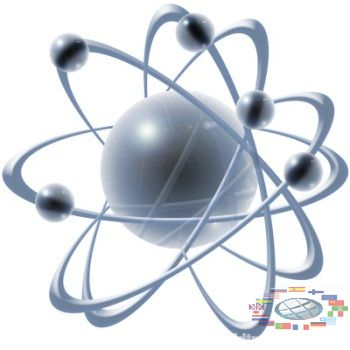
Rejection of nuclear energy has become a historical step for a country that for a long time relied on this sector of energy. This also means the government's refusal of statements, made just after one of the strongest nuclear disasters of our time.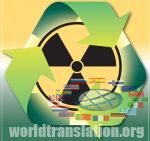 Despite its name, the program "revolutionary strategy in the energy and ecology", still prolongs refusal of nuclear power for almost a decade (compared with the original plan), plus it contains loopholes that allow separate reactors continue to work even after the new deadline.
Despite its name, the program "revolutionary strategy in the energy and ecology", still prolongs refusal of nuclear power for almost a decade (compared with the original plan), plus it contains loopholes that allow separate reactors continue to work even after the new deadline.
Before the accident at the NPP "Fukushima-1", nuclear power had produced about 30% of electricity in the country. Already in 2030 was planned to increase this share up to 50%. But, after the disaster under the public pressure, authority has made a number of statements that Japan must completely abandon the peaceful atom.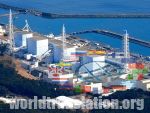 After the tension had eased, and almost all of the reactors stopped "to check for security," one could hear the voices of other businessmen and politicians, who argued that it could put poor in resources Japan in dependence on imported fuel and, as a consequence, lead to an economic downturn.
After the tension had eased, and almost all of the reactors stopped "to check for security," one could hear the voices of other businessmen and politicians, who argued that it could put poor in resources Japan in dependence on imported fuel and, as a consequence, lead to an economic downturn.
Japanese authorities had to seek a solution that would satisfy both camps (as the nuclear lobby and the anti- nuclear movement), but instead, it looks like, they have disappointed all at once.
Tetsunari Iida - director of "the Institute of sustainable energy policy" called the program fraud by means of digits and words, and Hiromasa Enekura - chairman of the influential trade and industry association "Keidanren" stated that the complete elimination of nuclear power "is not only unrealistic, but is also unattainable."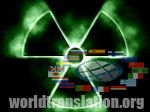 Someone nods to the example of Germany, which has decided to completely abandon the atom to 2022 (in 2010 in this sector was accounted for almost 26% of all energy). Someone emphasizes that a simultaneous stopping of all the reactors may lead to losses in the energy sector in the amount of 55.9 billion dollars. The four companies, at least, may become insolvent. As you know, power in Japan is tightly controlled by the state, there is practically no competition, and the country can not afford even the bankruptcy of one of the operators.
Someone nods to the example of Germany, which has decided to completely abandon the atom to 2022 (in 2010 in this sector was accounted for almost 26% of all energy). Someone emphasizes that a simultaneous stopping of all the reactors may lead to losses in the energy sector in the amount of 55.9 billion dollars. The four companies, at least, may become insolvent. As you know, power in Japan is tightly controlled by the state, there is practically no competition, and the country can not afford even the bankruptcy of one of the operators.
Therefore, the program proposes to appoint a deadline to 2040, by the time the service life of most operators will end, and huge losses would not threaten to the companies. Currently in Japan, only two reactors are functioning of more than fifty. Power industry tries to compensate their stopping by using of oil products and natural gas. This summer government for the second year in a row asked its citizens to save up to 15% energy. However, despite multiple warnings, the demand was satisfied, and were no large-scale power cuts.
Currently in Japan, only two reactors are functioning of more than fifty. Power industry tries to compensate their stopping by using of oil products and natural gas. This summer government for the second year in a row asked its citizens to save up to 15% energy. However, despite multiple warnings, the demand was satisfied, and were no large-scale power cuts.
At the same time, Japan's largest power company and operator of the Fukushima nuclear power plant - Tokyo Electric had increased the prices for both houses (by more than 8%), and enterprises (about 15%).
The government received a warning from the private sector that due to the increased costs, many companies will have to withdraw all of their operations abroad. Last year, the import of expensive fuel caused the negative trade balance first time in 30 years. It turns out, that one camp demand an immediate ban on nuclear power, and the other stand for further development of this sector. In these circumstances, can be only one reasonable plan, and it must be a compromise.
It turns out, that one camp demand an immediate ban on nuclear power, and the other stand for further development of this sector. In these circumstances, can be only one reasonable plan, and it must be a compromise.
- First, all nuclear power plants should be thoroughly tested to comply with the new, more stringent safety regulations.
- Second, the government should completely abandon the construction of new nuclear reactors.
- Third, Japan needs to start actively investing in existing renewable energy sources so that by the time when the term of operation of existing now reactors will expire, their closure would not affect the energy sector of the country.
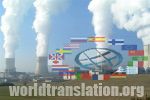 Also, do not forget that after the reactor shutdown, due to increased using of fossil fuels dramatically has increased the amount of carbon dioxide emissions, and this problem also requires the solution.
Also, do not forget that after the reactor shutdown, due to increased using of fossil fuels dramatically has increased the amount of carbon dioxide emissions, and this problem also requires the solution.
Video: "Explosion of NPP in Fukushima"